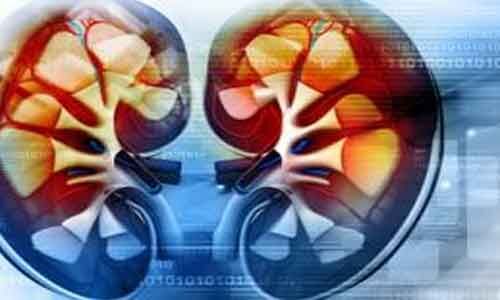- Home
- Medical news & Guidelines
- Anesthesiology
- Cardiology and CTVS
- Critical Care
- Dentistry
- Dermatology
- Diabetes and Endocrinology
- ENT
- Gastroenterology
- Medicine
- Nephrology
- Neurology
- Obstretics-Gynaecology
- Oncology
- Ophthalmology
- Orthopaedics
- Pediatrics-Neonatology
- Psychiatry
- Pulmonology
- Radiology
- Surgery
- Urology
- Laboratory Medicine
- Diet
- Nursing
- Paramedical
- Physiotherapy
- Health news
- Fact Check
- Bone Health Fact Check
- Brain Health Fact Check
- Cancer Related Fact Check
- Child Care Fact Check
- Dental and oral health fact check
- Diabetes and metabolic health fact check
- Diet and Nutrition Fact Check
- Eye and ENT Care Fact Check
- Fitness fact check
- Gut health fact check
- Heart health fact check
- Kidney health fact check
- Medical education fact check
- Men's health fact check
- Respiratory fact check
- Skin and hair care fact check
- Vaccine and Immunization fact check
- Women's health fact check
- AYUSH
- State News
- Andaman and Nicobar Islands
- Andhra Pradesh
- Arunachal Pradesh
- Assam
- Bihar
- Chandigarh
- Chattisgarh
- Dadra and Nagar Haveli
- Daman and Diu
- Delhi
- Goa
- Gujarat
- Haryana
- Himachal Pradesh
- Jammu & Kashmir
- Jharkhand
- Karnataka
- Kerala
- Ladakh
- Lakshadweep
- Madhya Pradesh
- Maharashtra
- Manipur
- Meghalaya
- Mizoram
- Nagaland
- Odisha
- Puducherry
- Punjab
- Rajasthan
- Sikkim
- Tamil Nadu
- Telangana
- Tripura
- Uttar Pradesh
- Uttrakhand
- West Bengal
- Medical Education
- Industry
Using depression screening tools in patients with kidney failure

Washington, DC - A recent analysis examines research on the use of depression screening tools in patients with kidney failure. The results appear in an upcoming issue of CJASN.
People with kidney failure experience depression at rates higher than the general population. Medicare requires routine depression screening for patients with kidney failure, but no clear guidance on which methods to use.
Karli Kondo, PhD (VA Portland Health Care System and Oregon Health & Science University) and her colleagues conducted a review to identify depression screening tools that are appropriate for patients with kidney failure, and to better understand the impact of depression screening in this population.
The investigators identified 16 relevant studies that evaluated the performance characteristics of depression assessment tools for patients with kidney failure. A tool called the Beck Depression Inventory II (BDI-II) was by far the most extensively studied, with 9 studies examining its performance. Other tools included the Cognitive Depression Index (CDI), the Center for Epidemiologic Studies - Depression Scale (CES-D), the Hospital Anxiety and Depression Scale - Depressive Subscale (HADS-D), the Geriatric Depression Scale-15 (GDS-15), the Hamilton Depression Rating Scale (Ham-D), the Patient Health Questionnaire 2 (PHQ-2), PHQ-9, and others.
"Our hope was that we'd find evidence that pointed to an optimal screening tool. This was optimistic of course, for if there was one that had strong evidence, it would already be in use," said Dr. Kondo. "We also hoped that the we'd find some evidence to support the use of the tools that are common in practice. And we didn't. The PHQ-2 and -9 are widely used in medical settings and are free. The CES-D is another that is commonly used. We found only one study each of the PHQ-9 and the CES-D, and no studies of the PHQ-2."
Dr. Kondo noted that many of the studies were conducted overseas, and it's unclear how applicable they are to patients in the United States. Many of the studies were small, and among the studies examining the same tools, there wasn't much agreement in the cutoff values chosen to define depression and its severity.
An accompanying editorial notes that there are multiple practical considerations to take into account when considering the best screening tool to identify depression in patients with kidney failure on dialysis.
A Patient Voice also accompanies the study and provides the perspective of a veteran with kidney disease who was diagnosed with depression through the PHQ-9 tool.
https://cjasn.asnjournals.org/content/early/2020/11/17/CJN.05540420
Hina Zahid Joined Medical Dialogue in 2017 with a passion to work as a Reporter. She coordinates with various national and international journals and association and covers all the stories related to Medical guidelines, Medical Journals, rare medical surgeries as well as all the updates in the medical field. Email: editorial@medicaldialogues.in. Contact no. 011-43720751
Dr Kamal Kant Kohli-MBBS, DTCD- a chest specialist with more than 30 years of practice and a flair for writing clinical articles, Dr Kamal Kant Kohli joined Medical Dialogues as a Chief Editor of Medical News. Besides writing articles, as an editor, he proofreads and verifies all the medical content published on Medical Dialogues including those coming from journals, studies,medical conferences,guidelines etc. Email: drkohli@medicaldialogues.in. Contact no. 011-43720751


